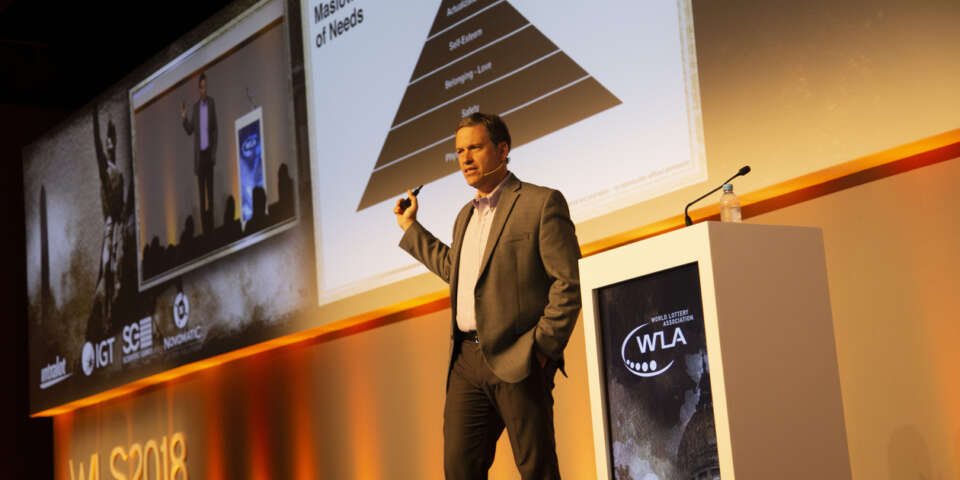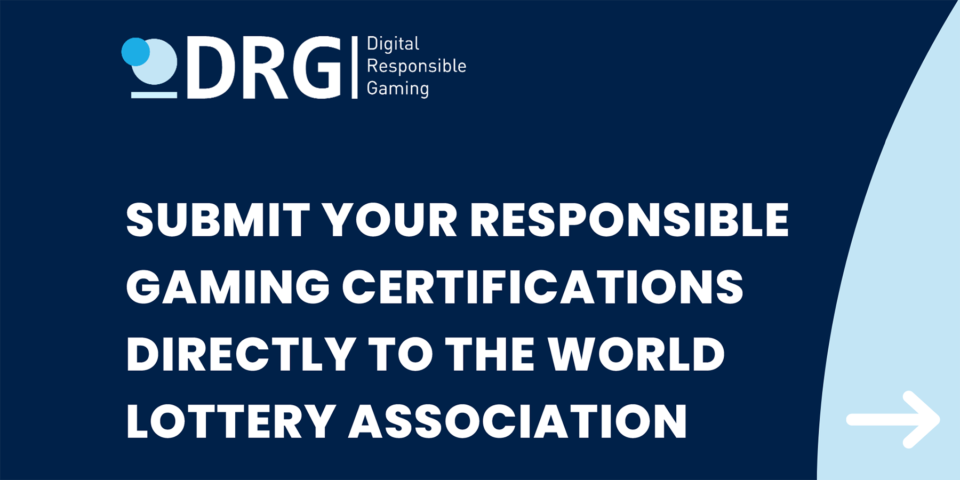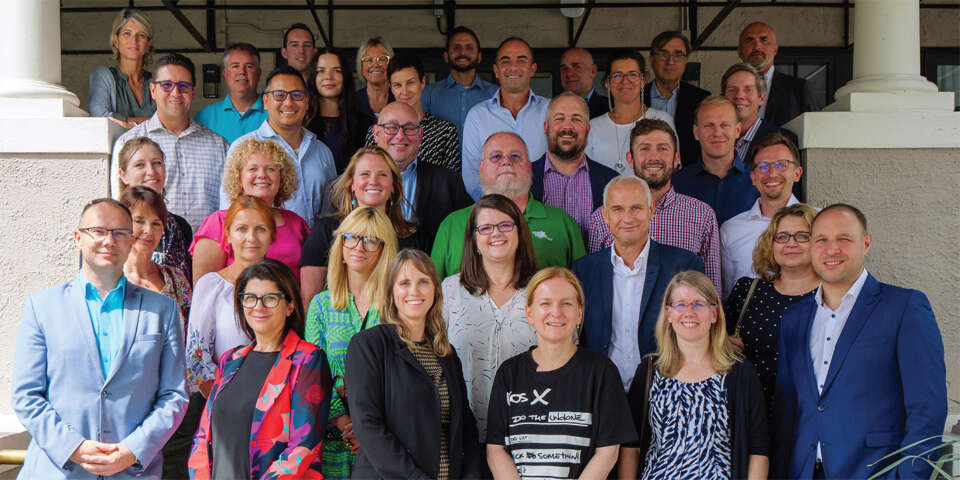How does one market to a generation that is regularly faced with distraction and constantly oversaturated with information? How can one inspire and reward the adventurous mindset that is necessary to enjoy the offerings of the world's lotteries, when conservative behavior is on the rise? Jeff Fromm, president of FutureCast, a marketing consultancy that specializes in millennial trends, answered those questions in a motivational keynote speech of the World Lottery Summit entitled How to Attract the Elusive Millennial on Monday, November 19, 2018. He is a contributing writer to Forbes magazine and the co-author of three books: Marketing to Millennials, Millennials with Kids and Marketing to Gen Z. He has more than 25 years of brand marketing consulting experience.
When Fromm kicked off his speech, his charisma and sense of humor were immediately apparent. He began by pointing out the differences between modern consumers and past generations. "Today's modern consumers are distracted by and addicted to the phone," he said. "It's not even a phone, it's a modern-day Swiss Army knife… If you want to text me, I'm not going to answer. We're talking about youth culture. There are no young people who are going to call you back."
He went on to discuss modern family dynamics, and pointed out that in the USA, 1 in 4 stay-at-home parents is now male, and the fastest growing group who are earning USD 100,000 per year or more are millennial women over the age of 30.
In past generations, people were aware of Maslow's theory that food, water and shelter were the most vital necessities in life, but with tongue in cheek, he pointed out that it's no longer true. "Modern consumers need wifi," he said. "I can take away your food and shelter and you'll be fine for 30 minutes. No wifi, big problems."
But Fromm is not only focused on the importance of marketing to millennials. He's also looking at the next generation, or 'Gen Z' as he calls it in his book. Gen Z is typically defined as being born from the mid-1990s to mid-2000s. He states that the generation is not only defined by age, but by mindset. "They're old souls in young bodies," he says. According to Fromm, they are more similar to people who are 30 years older than to people who are 10 years older. What you do is more important to them than what you say. To Gen Z, actions matter more than words.
Whereas millennials were great collaborators and tended to overshare on social media, privacy is very important to the younger generation. That means they have to develop trust in your brand in order to engage with it. This generation looks very differently at social media and the concept of trust. For the companies who want to be trusted by them, trust means proper security measures, and taking actions that they sometimes can't even see, in favor of them as consumers.
Millenials were concerned about the environment and forced many brands to go paperless, but Gen Z is focused on equality. What's more, they expect equality for everyone. "We're at the very beginning of a wave on the topic of equality," Fromm says. "It's just getting started."
It's well known that millennials have short attention spans. You would be forgiven for thinking that Gen Z has even shorter attention spans, but it's not true. All consumers have short attention spans if the content you're sharing doesn't interest them. "So create amazing content, not ordinary content," Fromm advises.
Another major difference between Millennials and Gen Z is the willingness for risk taking. Millennials are open to taking big risks, but Gen Z is much more conservative. This wave of conservatism is just beginning.
Brand "Dating"
One way to look at modern consumerism is with the concept of love or dating, Fromm says. Most modern consumers are not monogamous, and they 'date' various brands simultaneously. But the goal is to create brand 'love'. Is that even possible? Consistency and spontaneity are two vital ingredients, he points out. Most brands seem to make a good impression at first, but not necessarily on the second 'date'.
Here, it's important to give up old models in favor of unproven schemes in order to achieve spontaneity, which often seems to be the missing key element. Research has proven that about 75% of brand loyalty is achieved through pricing and distribution strategy, but 25% has to do with the generational mindset. Jeff Fromm presented 6 mindsets which account for 25% of future sales and profit opportunities. They are:
1. Social circle: Is your brand a part of cultural conversation?
2. Self: Is there an emotional connection to the brand? Here price elasticity is an advantage. People are willing to pay more for emotional connection. One great example of this is the adventure theme of the Red Bull advertisements. It has no basis in the reality about the drink itself, but people are very attracted by the concept and myth that has been built around it.
3. Innovation. This was never very high on the radar before, but has now become increasingly important. Innovative new products and a new culture of employee innovation have arisen in major companies in the last eight years.
4. Trust: This is a big issue in the lottery business. It's achieved through remarkable consistency, and either you have it, or you don't. It's been proven not to be effective to attempt to communicate trust messages through marketing or advertising. The only way to do it is to show trustworthiness and consistency through your company's actions.
5. Purpose: This can be a major differentiator. Is your brand getting credit for its purpose? Is there some kind of charity or ecological goal your company has which hasn't been advertised? This is an area where companies can grow when other areas of potential have already been maximized, such as trust, etc. Getting credit for your purpose is very important. This could be one of the greatest new opportunities that your company has and doesn't know about yet.
6. Be accessible: Be hyper-useful and hyper-convenient. Amazon, for example, is always giving up old models for new ones. Most successful brands won't do this. This is the biggest risk a brand can face.
New Frameworks
How do you apply the research to the brands you have, and how can you take the information home to work on your lottery, in your country?
Fromm shared several new frameworks:
1. Only amplify remarkable experiences. Create opportunities for consumers to curate their social feed. Only stories that are shared matter. Modern consumers want to be part of the experience! They want to co-create the story and have an interactive experience.
2. Embrace a culture of content. You need a strategy for both planned and unplanned opportunities. Use opportunities to get credit with your consumers.
3. As part of the new frameworks, innovation is a very important topic. There is a very high return on investment in innovation and sustaining it, as high as 90-95%. There are different kinds of innovation, but the most useful and usually least taken advantage of is disruptive innovation. Companies often reject the innovation opportunities in front of them. The questions they need to ask are, can they afford to take the risk? And is it consistent with their brand authority? But according to Fromm, it's important to invest between 3 and 7% of your innovation portfolio in disruptive innovation, creating friction and commanding interest. He tells us that the golden rule, "Do unto others as you would have them do unto you", is a terrible rule for innovation. Instead, he recommends what he calls the platinum rule: treat others the way they want to be treated. In a nutshell, your views are less important than the consumers' views.
4. Engage employees first. Employees are often extremely passionate about their brands, and it helps to connect emotionally with them. It doesn't have to be anything huge or expensive, it's enough to invest a little time and money in something that can 'drive love' among them. For example, one tech company changed 'bring your kids to work day' to 'bring your parents to work day', where the parents were introduced to the new technology in their children's daily lives. This created an emotional bond which included the company and left everyone feeling good. So it's important to think about what new things can be done for your employees.
"In tomorrow land," Fromm said, neatly summarizing his presentation, "some of the things you've done in the past will help you be more successful, and some may slow you down. And it's important to understand, tomorrow's consumer is really expecting a lot from your brand. Being more convenient and more useful will be the price of admission for those of you who want extraordinary financial performance."










